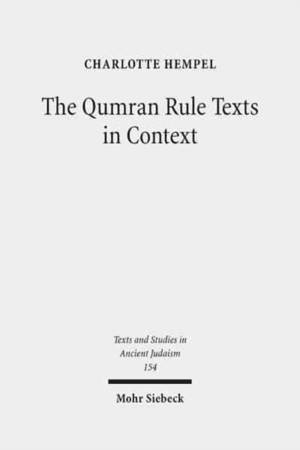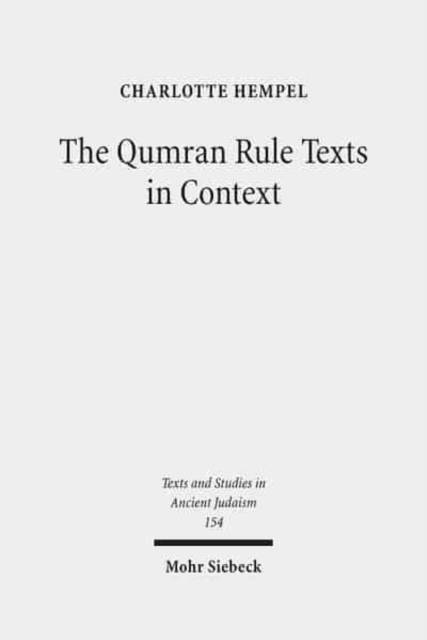
- Afhalen na 1 uur in een winkel met voorraad
- Gratis thuislevering in België vanaf € 30
- Ruim aanbod met 7 miljoen producten
- Afhalen na 1 uur in een winkel met voorraad
- Gratis thuislevering in België vanaf € 30
- Ruim aanbod met 7 miljoen producten
Zoeken
The Qumran Rule Texts in Context
Collected Studies
Charlotte Hempel
Hardcover | Engels | Texte und Studien zum Antiken Judentum / Texts and Studies in Ancient Judaism TSAJ | nr. 154
€ 167,45
+ 334 punten
Uitvoering
Omschrijving
Ever since the discovery of the Dead Sea Scrolls, the Community Rule has been at the forefront of the scholarly imagination and is often considered a direct channel to life at Khirbet Qumran - an ancient version of 'reality TV'. Over the course of the last fifteen years - the Cave 4 era - scholars have increasingly come to recognize the significance of the Scrolls as a rich text world from a period when texts, traditions, and interpretation laid the foundations of Western civilisation. The studies by Charlotte Hempel gathered in this volume deal with several core Rule texts from Qumran, especially with the Community Rule (S), the Rule of the Congregation (1QSa), the Damascus Document (D), and 4Q265 (Miscellaneous Rules). The author uncovers a complex network of literary and more murkily preserved social relationships. She further investigates the Rule literature within the context of wisdom, law, and the scribal milieu behind the emerging scriptures.
Specificaties
Betrokkenen
- Auteur(s):
- Uitgeverij:
Inhoud
- Aantal bladzijden:
- 396
- Taal:
- Engels
- Reeks:
- Reeksnummer:
- nr. 154
Eigenschappen
- Productcode (EAN):
- 9783161527098
- Verschijningsdatum:
- 1/09/2013
- Uitvoering:
- Hardcover
- Formaat:
- Genaaid
- Afmetingen:
- 150 mm x 231 mm
- Gewicht:
- 771 g

Alleen bij Standaard Boekhandel
+ 334 punten op je klantenkaart van Standaard Boekhandel
Beoordelingen
We publiceren alleen reviews die voldoen aan de voorwaarden voor reviews. Bekijk onze voorwaarden voor reviews.











